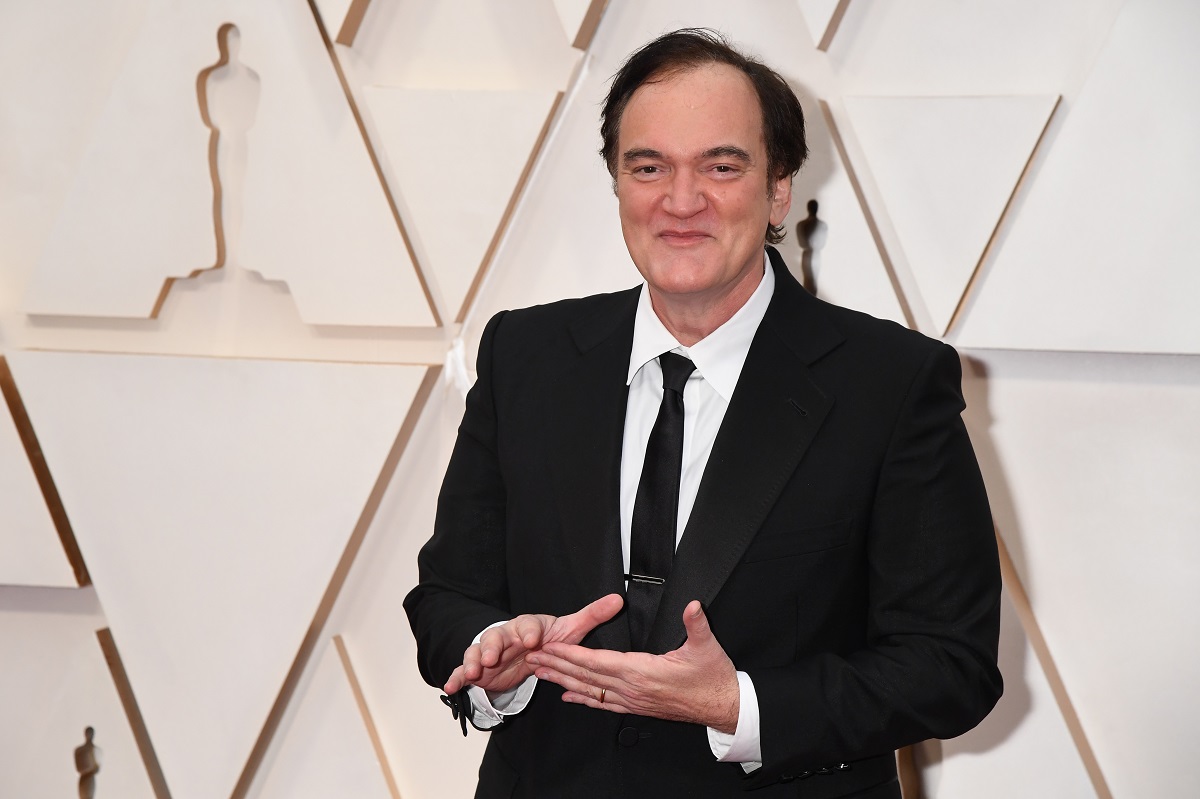Quentin Tarantino Didn’t Want To Be Called a ‘White Boy’ When He Was Younger
Quentin Tarantino has been somewhat open about his childhood. Raised by a single mother, Tarantino spent the vast majority of his pre-adolescent and adolescent years in Los Angeles, living in a community that was ahead of its time in terms of diversity. It’s this diversity that seems to have informed the vast majority of his work, which has always been big on minority representation. Especially when it comes to showcasing black culture.
Quentin Tarantino was immersed in Black Culture in his youth

From Pulp Fiction to Django Unchained, there’s a certain amount of black culture embedded in his work. Tarantino attended a majority black school when he was younger, which left an impression on him. “I kind of grew up surrounded by black culture,” Tarantino said in an interview with The Guardian. “I went to an all-black school. It is the culture that I identify with. I can identify with other cultures too; we all have a lot of people inside of us, and one of the ones inside me is black.”
Tarantino later goes on to clarify how much his upbringing had an undeniable presence in his movies. “Don’t let the pigmentation fool you; it is a state of mind. It has affected me a lot in my work. To try to point out would kind of be beside the point; you just see it; it is there.”
Quentin Tarantino avoided anything that would’ve gotten him called a “White Boy”
During his visit on Dax Shepard’s podcast, Armchair Expert, Tarantino opened up briefly about his childhood. The director explained how he avoided many interests and hobbies so he wouldn’t be called a white boy by peers. “I didn’t want to associate with anything that the term white boy would be involved,” Tarantino said. “No Black Sabbath, no Ozzy Osbourne, no Heavy Metal whatsoever. I mean, whatsoever.”
Tarantino’s remarks about his environment ring with a certain fondness. The Jackie Brown director reminisces about a majorly Black community that accepted him with open arms, proving that his ties to the culture are more authentic than fraudulent.
“Well, I wasn’t an other. They were my friends, they were who were around me for five, six years,” Tarantino later told Shepard. “So, I talked just like them. My point of reference was exactly the same point of reference, at least pop-culturally, was the exact same point of reference. We saw the same movies, we watched the same television shows, we were listening to the same songs.”
Quentin Tarantino’s influences
Although Tarantino has come a long way from his roots, the experiences and connections he’s made with his peers have had a clear influence on his career, an influence that’s partly responsible for him becoming one of the most prolific directors of all generations.
After all, the diversity present in Pulp Fiction is one of the reasons why the film is praised the way it is, and his own sensitivities to the culture allowed him to make a film that covered the brutality of slavery, while also providing a sort of African American folkhero in Django. It’s his upbringing that taught Tarantino the significance of cultural diversity, and without those instincts, who knows if Tarantino would’ve been the same filmmaker he is now.


